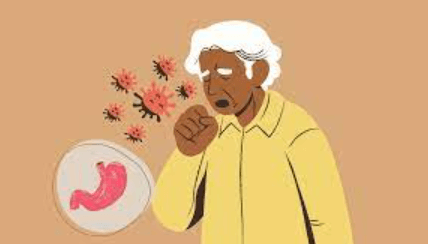
Living with Gastroesophageal Reflux Disease (GERD) can be a delicate balance, and the occasional flare-up can disrupt the daily lives of those managing this chronic condition. Understanding effective coping mechanisms and implementing prevention strategies are essential to navigating GERD and maintaining a better quality of life. This guide explores ways to cope with GERD flare-ups and practical strategies to minimize their occurrence.
Understanding GERD Flare-Ups:
GERD flare-ups refer to periods when the symptoms of acid reflux intensify, causing discomfort and potentially impacting daily activities. These episodes can vary in severity and duration, ranging from mild and temporary to more pronounced and enduring. Common symptoms during flare-ups include heartburn, regurgitation, chest pain, and throat irritation.
Coping Mechanisms for GERD Flare-Ups:
Immediate Relief Measures:
- Antacids: Over-the-counter antacids can provide quick relief by neutralizing stomach acid. Keep antacids on hand for immediate use during flare-ups.
- Sip Water: Drinking small sips can help wash away stomach acid and alleviate symptoms. Avoid large gulps, which can distend the stomach and worsen reflux.
Modify Your Position:
- Stand or Sit Upright: Remaining upright can help gravity keep stomach acid in the stomach. StandStand or sit instead of lying down during and after meals if possible.
- Use Gravity at Night: Elevate the head of your bed or use extra pillows to create a slight incline. This can prevent stomach acid from flowing back into the esophagus while sleeping.
Avoid Trigger Foods:
- Identify Personal Triggers: Keep a food diary to identify foods that trigger your GERD symptoms. Common triggers include citrus fruits, tomatoes, chocolate, spicy foods, and fatty meals.
- Limit Trigger Foods During Flare-Ups: To minimize the risk of exacerbating symptoms, consciously avoid known trigger foods.
Manage Stress:
- Practice Relaxation Techniques: Stress can contribute to GERD flare-ups. Incorporate stress-reducing activities, such as deep breathing, meditation, or gentle exercise, into your routine.
- Create a Calm Sleep Environment: Establish a soothing bedtime routine to promote better sleep, reducing the likelihood of nighttime reflux.
Dress Comfortably:
- Wear Loose-Fitting Clothing: Tight clothing, especially around the waist, can increase pressure on the stomach and aggravate GERD symptoms. Opt for loose-fitting, comfortable attire.
Stay Hydrated:
- Choose Non-Acidic Beverages: Drink water, herbal teas, non-citrus, and non-tomato juices to stay hydrated without exacerbating reflux.
- Limit Caffeine and Alcohol: Both caffeine and alcohol can contribute to dehydration and may stimulate acid production. Moderation is key.
Prevention Strategies for Long-Term Management:
Adopt a GERD-Friendly Diet:
- Eat Smaller, Frequent Meals: Large meals can trigger GERD symptoms. Opt for smaller, more frequent meals to reduce the pressure on the stomach.
- Choose Low-Acid Foods: Incorporate non-acidic fruits, vegetables, lean proteins, and whole grains into your diet. These choices can help minimize reflux.
Maintain a Healthy Weight:
- Incorporate Regular Exercise: Regular physical activity can aid digestion and help manage weight. Consult with healthcare professionals before starting a new exercise regimen.
Avoid Eating Before Bed:
- Allow Time for Digestion: Finish meals at least two to three hours before bedtime to allow the stomach to empty before lying down.
- Limit Late-Night Snacking: Avoid heavy snacks or large meals close to bedtime.
Quit Smoking:
- Seek Smoking Cessation Support: Smoking weakens the lower esophageal sphincter (LES), contributing to GERD. Quitting smoking can improve GERD symptoms and overall health.
Consult with Healthcare Professionals:
- Regular Check-ups: Schedule regular check-ups with healthcare professionals to monitor your GERD and adjust your treatment plan.
- Medication Management: If prescribed medications, take them as directed and discuss any concerns or changes in symptoms with your healthcare provider.
Track and Manage Triggers:
- Keep a Symptom Diary: Record daily activities, meals, and symptoms to identify patterns and triggers. This information can guide lifestyle modifications.
- Modify Lifestyle as Needed: Use the insights gained from tracking to make informed diet, exercise, and stress management decisions.
When to Seek Professional Help:
While these coping mechanisms and prevention strategies can be effective for managing GERD, it’s crucial to seek professional guidance if:
- Symptoms persist or worsen despite lifestyle modifications.
- Medications do not provide adequate relief.
- There are concerns about potential complications, such as Barrett’s esophagus or esophageal strictures.
Healthcare professionals can conduct diagnostic tests, such as endoscopy or pH monitoring, to assess the severity of GERD and recommend appropriate interventions.
Conclusion: Empowering Yourself in the Face of GERD Flare-Ups:
Coping with GERD flare-ups requires a proactive and personalized approach. By implementing immediate relief measures, modifying lifestyle factors, and adopting long-term prevention strategies, individuals can empower themselves to manage GERD effectively and improve their overall well-being. Consistency, self-awareness, and collaboration with healthcare professionals are critical components of a successful GERD management plan, ensuring a better quality of life despite occasional flare-ups.